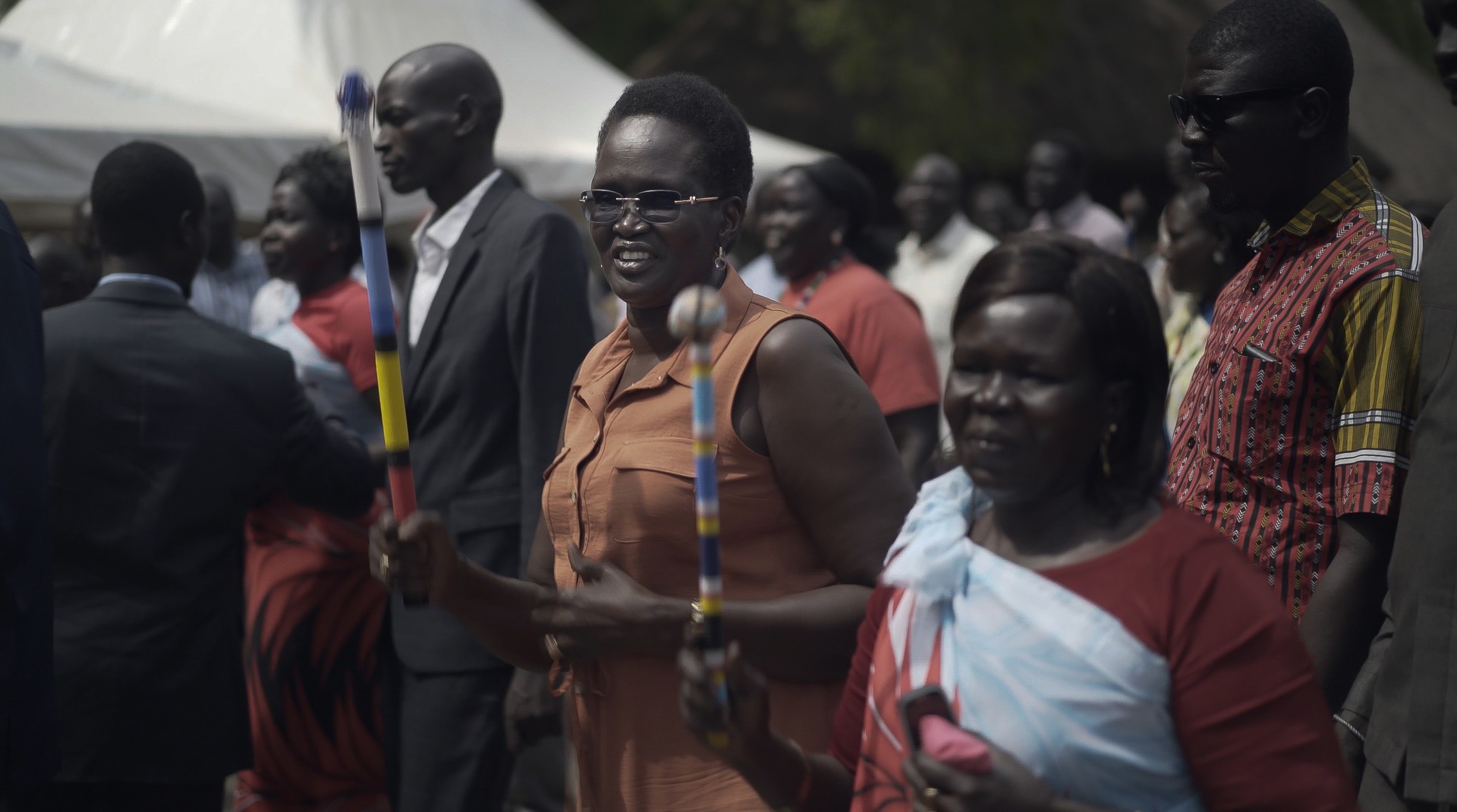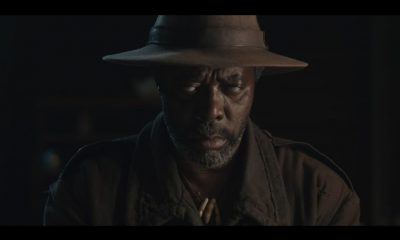The Best African Films of 2022
From personal family documentaries to science fiction tales, this year gave us a rich offering of titles made by filmmakers from the continent and the diaspora.
While the beginning of this year may have seen a lack of recognition for African films at the Oscars, directors both new and established gave audiences more than enough to reason to support their work.
From Nikyatu Jusu‘s Nanny wowing audiences at the Sundance Film Festival to Alice Diop making history by her becoming the first Black woman director to be selected as France’s entry into the Oscars’ best international picture category for Saint Omer. From newcomers like Akuol de Mabior creating excitement about her future as a filmmaker sharing stories from her native South Sudan to South Africa’s Oliver Hermanus continuing to raise the bar on his work with each new film he makes.
These are the films that captivated movie lovers in 2022, in no particular order:
For Maria (Ẹ̀bùn Pàtàkì)
Even though Damilola Orimogunje‘s debut premiered in 2020 at Film Africa, it was released this year to a larger audience, on Netflix, where it gained a loyal audience who became swept up in the story and its themes. First-time mother (Meg Otanwa) fails to bond with her newborn after suffering a difficult delivery. Her loved ones are unable to help her. The consequences are tragic. In this stark drama, Orimogunje and his talented cast of actors are able to create a realist piece of cinema that powers through limited resources and shines with intent. With mood, colors, shadows and silences, For Maria (Ẹ̀bùn Pàtàkì) paints a convincing and chilling picture of postpartum depression.
Nanny
Sierra Leonean American filmmaker Nikyatu Jusumade her feature debut with Nanny, a visually arresting horror fable about an undocumented Senegalese woman (Anna Diop) who becomes a nanny to a wealthy couple on New York’s Upper East Side. Nanny premiered at Sundance where it emerged the big winner in the U.S. Dramatic Competition. The film is a visual delight, with Jusu’s singular vision emerging smartly through the crisp photography and engagement with West African folklore.
No U-Turn
Seven years ago, Ike Nnaebue, seduced by the prospects of a better life beyond the shores of Nigeria, ventured on a tedious journey, hoping to arrive in Morocco by road. From there, he would attempt to reach Europe by crossing the Mediterranean Sea. Nnaebue got as far as The Gambia when he made a U-turn, armed with enough firsthand warnings about the perils of crossing over. Years later, Nnaebue attempts to make sense of that period of his life by revisiting that journey on film. The revealing and self-reflective No U-Turn, which premiered at the Berlinale, is the result.
Our Father, the Devil
Ellie Foumbi’s knockout debut feature is produced in the U.S. and set in a small French town, but that doesn’t make it any less African. Marie (a revelatory Babetida Sadjo) is a war survivor picking up the pieces of her life. She recognizes the newly transferred Catholic priest at her workplace as the warlord responsible for murdering her family. This sends her on a downward spiral into the horrors she thought she had escaped. Our Father, the Devil is a provocative and intellectual excavation into the nature of trauma.
Saint Omer
Saint Omer marks Alice Diop’s transition to fiction after seventeen years of working as a documentary filmmaker. Saint Omer won both the Grand Jury and best debut feature prizes at the Venice Film Festival where it debuted. The film is a delicately observed, heart wrenching legal drama that follows a young novelist Rama (Kayije Kagame) covering the trial of an immigrant mother (Guslagie Malanga)accused of infanticide. Diopproves herself a master of the form as she turns fact to entrancing fiction, asking audiences to decipher an ultimately unknowable protagonist.
Neptune Frost
Neptune Frost, the collaboration between Anisia Uzeyman and Saul Williams, began gathering steam last year when it debuted at the Directors’ Fortnight section of the Cannes Film Festival, where it was a nominee for the Queer Palm. But being released to cinemas in the U.S. and U.K. this year gave the film the wider platform it deserved, and word of mouth, together with high praise, spread the gospel about this wholly unique Afrofuturist sci-fi musical, set in an alternative world within Burundi. With dazzling set design, the film follows intersex hacker Neptune (played first by Elvis Ngabo, then Cheryl Isheja) and coltan mine worker Matalusa (Burundian rapper Kaya Free) as they face off against an oppressive regime. The film is as bold and as daring as they come, and has us eager to see more from the minds of Uzeyman and Williams.
Under The Fig Trees
Set in between the branches and tree trunks of an orchard, French Tunisian director Erige Sehiri immerses the audience in a day in the life of a group of fig pickers, many of them played by first-time actors, including the wonderful Fidé Fdhili. Under The Fig Trees reveals, over the course of the hours that pass, the individual passions and predilections, as well as the problems that exist for the pickers, illuminating a bigger discourse about the role of men and women in society. Under The Fig Trees is, deservedly so, Tunisia’s submission to the Oscars for best international film.
CESÁRIA ÉVORA
Ana Sofia Fonseca was in Cape Verde in the days following the passing of Cesária Évora in December 2011, and, upon seeing the impact her death had on people, she decided to take on the immense task of capturing the singer’s essence in a documentary. The resulting CESÁRIA ÉVORA, which premiered at SXSW earlier this year, is an absolute delight for any fan of the Barefoot Diva’s music. Using previously unseen archival footage, together with newly-discovered original recordings, as well stories shared by those who were close to her, Fonseca gives us a rich understanding of the person behind the voice that’s still adored the world over.
No Simple Way Home
Akuol de Mabior‘s debut feature attracted attention even before it made its premiere, for being the first ever film from a South Sudanese director to be selected to play at the Berlin Film Festival, at the beginning of this year. An assured first foray into filmmaking, de Mabior’s No Simple Way Hometells a deeply personal story of a daughter born and raised in exile following her mother’s quest to further the aims her late husband (de Mabior’s father) had in building a new South Sudan.
Living
Remaking a classic — especially one by the iconic Japanese filmmaker Akira Kurosawa — is no mean feat. And yet, Oliver Hermanuspulls it off with aplomb, giving us one of the best performances of Bill Nighy‘s career. Hermanus, who has steadily been building his reputation on the arthouse circuit as a director who thoroughly situates his stories within. In this tender reworking of the tale, Hermanus paints a tender portrait of a man dealing with a terminal diagnosis that remains as timeless as when it was first told.























